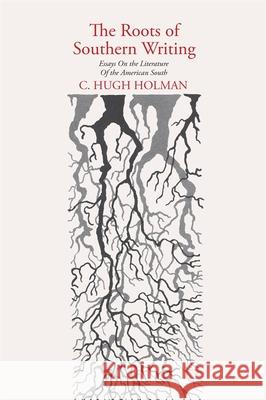The Roots of Southern Writing: Essays on the Literature of the American South » książka
The Roots of Southern Writing: Essays on the Literature of the American South
ISBN-13: 9780820333595 / Angielski / Miękka / 2008 / 252 str.
At the heart of the southern riddle you will find a union of opposites, a condition of instability, a paradox. Calm grace and raw hatred. Polished manners and violence. An intense individualism and intense group pressures toward conformity. A reverence to the point of idolatry of self-determining action and a caste and class structure presupposing an aristocratic hierarchy. A passion for political action and a willingness to surrender to the enslavement of demagogues. A love of the nation intense enough to make the South's fighting men notorious in our wars and the advocacy of interposition and of the public defiance of national law. A region breeding both Thomas Jefferson and John C. Calhoun. If these contradictions are to be brought in focus, if these ambiguities are to be resolved, it must be through the 'reconciliation of opposites.' And the reconciliation of opposites, as Coleridge has told us, is the function of the poet.
So begins the first of these seventeen penetrating essays drawn from long and fruitful reflection of southern life and art by C. Hugh Holman. Professor Holman maintains that there is a congeries of characteristics identifiably present in much southern writing, and he astutely defines them in this collection.
William Gilmore Simms, Ellen Glasgow, Thomas Wolfe, William Faulkner, and Flannery O'Connor are treated at length. Among the other authors considered in terms of their roles in the making of the southern mind are James Branch Cabell, T.S. Stribling, Erskine Caldwell, and Robert Penn Warren. The essays strike a fine balance between general overview and specific analysis, and they are so arranged as to make a unified study which forms a significant chapter in the intellectual history of the South.
Professor Holman asserts that "out of the cauldron of the South's experience, the southern writer has fashioned tragic grandeur and given it as a gift to his fellow Americans. It is possible that no other southern accomplishment will equal it in enduring importance. As urbanization and industrialism conspire to write an 'Epitaph for Dixie, ' its greatest contribution to mankind may well be the lesson of its history and the drama of its suffering." In these superb essays the author makes a convincing argument for that position.











